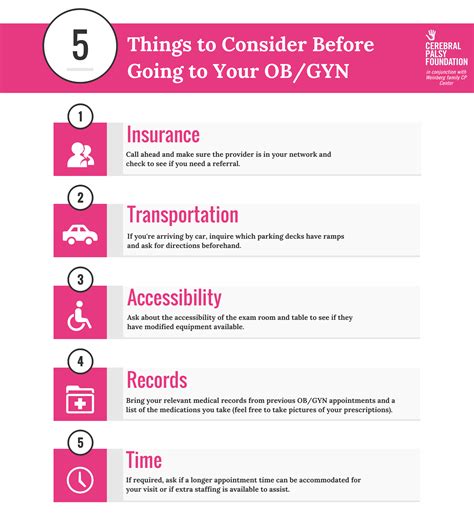Your Comprehensive Guide to OBGYN Appointments
Navigating the world of gynecological health can feel daunting, especially if you're unsure what to expect during your appointments. This comprehensive guide aims to demystify the process, providing you with the knowledge and confidence to approach your OBGYN visits with ease. Whether you're a teenager experiencing your first period or a woman managing menopausal symptoms, understanding what to expect can significantly reduce anxiety and improve your overall healthcare experience.
What Happens During a Typical OBGYN Appointment?
A typical OBGYN appointment involves several key components, although the specifics may vary based on your age, medical history, and current health concerns. Generally, you can expect the following:
- Medical History Review: Your doctor will begin by reviewing your medical history, including any past illnesses, surgeries, allergies, and current medications. Be prepared to discuss family history of relevant conditions, such as breast or ovarian cancer.
- Physical Exam: This is a crucial part of the appointment. The exam may include a breast exam, a pelvic exam (which may include a Pap smear and other screenings), and a general physical assessment. Your doctor will explain each step of the process and answer any questions you may have.
- Discussion of Concerns: This is your opportunity to address any health concerns you may have, whether it's irregular periods, pain during intercourse, or concerns about contraception. Don't hesitate to ask questions; your doctor is there to help.
- Counseling and Advice: Based on your individual needs, your doctor may offer counseling on various aspects of women's health, such as reproductive health, sexual health, or menopause management.
- Follow-up Plan: Your doctor will outline any necessary follow-up appointments, tests, or treatments.
What Should I Bring to My OBGYN Appointment?
Preparing for your appointment can make the experience smoother and more efficient. Remember to bring:
- Your insurance card: This is crucial for processing your payment.
- A list of your medications: Include both prescription and over-the-counter medications, supplements, and herbal remedies.
- A list of questions: Writing down your questions beforehand will ensure you don't forget anything during the appointment.
- A form of payment: Depending on your insurance coverage, you may need to pay a co-pay or other fees.
What Happens During a Pap Smear?
A Pap smear is a simple procedure to screen for cervical cancer. During the exam, a small sample of cells is collected from your cervix using a special brush or spatula. This sample is then sent to a lab for analysis. The procedure is generally quick and relatively painless, though some women may experience mild discomfort.
How Often Should I Get a Pap Smear?
The frequency of Pap smears depends on your age and medical history. Your doctor will recommend a schedule based on your individual needs. Generally, guidelines suggest less frequent screenings for women in their 30s and beyond with a history of normal results.
What if I'm Experiencing Irregular Periods?
Irregular periods can be caused by a variety of factors, including stress, hormonal imbalances, weight changes, and underlying medical conditions. Your doctor will conduct a thorough evaluation to determine the cause and recommend appropriate treatment, which may involve lifestyle changes, medication, or further testing.
What About Contraception Counseling?
OBGYNs are excellent resources for contraception counseling. They can discuss various contraceptive options, including pills, patches, implants, IUDs, and more, helping you choose the method that best suits your needs and lifestyle.
When Should I Schedule My First OBGYN Appointment?
The ideal time for your first OBGYN appointment is typically around age 13-15, or when you experience your first menstrual period. However, it's essential to consult a doctor sooner if you have any concerns about your reproductive health.
What Should I Do if I Have Concerns About My Breast Health?
Regular breast self-exams are important, and your OBGYN can teach you the proper technique. If you notice any changes in your breasts, such as lumps, bumps, or nipple discharge, schedule an appointment with your doctor immediately. Early detection is crucial for successful treatment.
This guide provides a general overview of OBGYN appointments. Remember, every woman's experience is unique, and the specifics of your appointment will depend on your individual circumstances. Always feel empowered to ask questions and advocate for your health. Open communication with your OBGYN is crucial for maintaining optimal reproductive and overall health.

